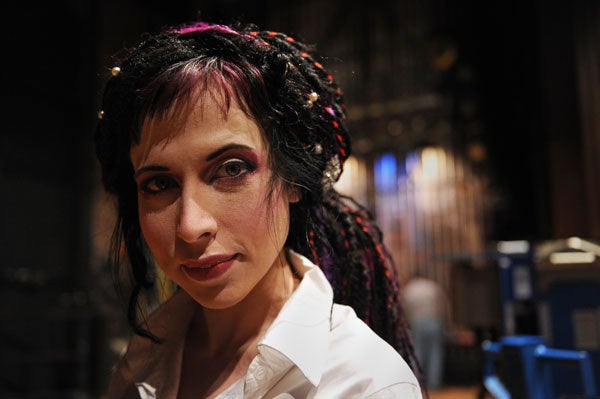Purge, By Sofi Oksanen, trans. Lola Rogers

Your support helps us to tell the story
From reproductive rights to climate change to Big Tech, The Independent is on the ground when the story is developing. Whether it's investigating the financials of Elon Musk's pro-Trump PAC or producing our latest documentary, 'The A Word', which shines a light on the American women fighting for reproductive rights, we know how important it is to parse out the facts from the messaging.
At such a critical moment in US history, we need reporters on the ground. Your donation allows us to keep sending journalists to speak to both sides of the story.
The Independent is trusted by Americans across the entire political spectrum. And unlike many other quality news outlets, we choose not to lock Americans out of our reporting and analysis with paywalls. We believe quality journalism should be available to everyone, paid for by those who can afford it.
Your support makes all the difference.Grandmother had to be able to see the sky – even at night, when there was nothing to see. She said it was the same sky they had at home." Home is not Vladivostok, where she shares a house with her daughter and granddaughter, and is treated as senile, only speaking her native language when caught off-guard in the watches of the night. Her home is somewhere far distant in both time and space.
In Sofi Oksanen's novel, granddaughter Zara becomes intrigued by this nocturnal speech and learns the outlandish-seeming tongue of her own forebears. One day she will visit the country where it is the norm - together with rhubarb crumble, redcurrant nectar and beautiful legends. But when eventually Zara does go to Estonia - ironically in 1992, a year after independence - it is as a girl-on-the-run who has exchanged Russia for the terrifying, obscene slavery of the sex trade.
A further irony is that the place Zara comes to in Estonia is the old family home, lived in now by Aliide Truu, sister to her beloved grandmother. Zara has carried through many vicissitudes a photo of the two of them. But for Aliide this picture elicits no tender emotions, only dread that the cruel past is still alive.
The sisters hated one another, with a hatred inextricable from the impositions of the history through which they, ordinary country people, had to live. These two young women balanced expediency against longer-term hopes, loyalties against self-interest, desires against objectivity. Aliide, always the loser in any comparisons between herself and her pretty, practical, warm-hearted sister, long ago realised that, whatever course she decided on, it would not grant her the satisfactions she felt entitled to. Her nature is as complex as her predicament, and she commands the Goya-like landscape of this powerful, passionately wrought novel, with her bewildered great-niece as part-foil, part-unwitting mirror-image, part-victim.
The physical horrors Zara is subjected to – recalling Lukas Moodyson's film, Lilja 4-Ever - are dwarfed by the more protracted moral horrors of Aliide's betrayals. The 1940s in Estonia resemble a sandwich with all three sections poisoned: Soviet occupation after the Molotov-Ribbentrop pact was followed by German "liberation" (a second vicious occupation), and then Russian re-conquest and incorporation into the USSR. The Finnish-Estonian Oksanen presents her history in a series of vivid cameos. Their order defies conventional chronology but corresponds to an inner logic of association and feeling, and so builds up the more strongly to the emotionally shattering climax.
The whole constitutes a metaphor for how deprivations of freedom never suppress our yearnings for it, yet these may take their own moral toll. Readers should brush up on Estonia's harsh 20th-century history to do proper justice to this extraordinary novel's unflinching scrutiny of heart and conscience operating in near-impossible circumstances.
Join our commenting forum
Join thought-provoking conversations, follow other Independent readers and see their replies
Comments